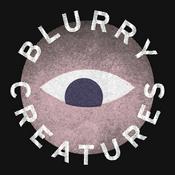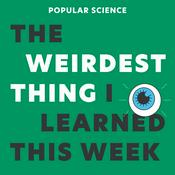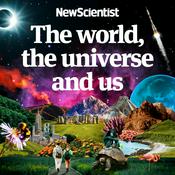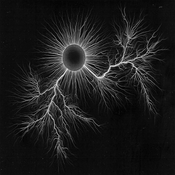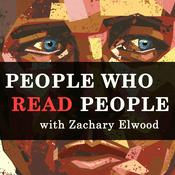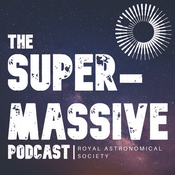144 episodes
- The only woman in a laboratory filled with men, Katharine Burr Blodgett soon becomes indispensable as an assistant to The General Electric Company’s most famous scientist, Irving Langmuir. Their working relationship is an elegant symbiosis: her forte is experimentation, his is scientific theory. We follow their partnership as they successfully find ways to build a better lightbulb but Langmuir stumbles with an off-the-wall theory of matter. All the while, Katharine builds her life in Schenectady: going to church, making new friends, falling in love. In 1924, she embarks on a new journey to the University of Cambridge, where she studies with some of the most prominent physicists of the 20th century.
Learn about your ad choices: dovetail.prx.org/ad-choices - Katharine Burr Blodgett arrives at The General Electric Company’s legendary research laboratory in Schenectady, New York, known as the “House of Magic.” She was just 20 years old when she entered a world built almost entirely for men. She joins as assistant to the brilliant and eccentric Irving Langmuir, a star chemist whose fundamental work in materials science and light bulbs would bring fame to him, and fortune to GE.
The General Electric Company was an obvious choice for a brilliant young scientist. But was it the promise of scientific discoveries that drew Katharine to Schenectady or the need to confront the personal tragedy that marked the place where her own story began? Perhaps it was both.
Learn about your ad choices: dovetail.prx.org/ad-choices Layers of Brilliance: The Chemical Genius of Katharine Burr Blodgett - Episode One
2026/1/29 | 34 mins.In the first of this five-part season we trace Katharine’s early years as she picks up European languages, her early scientific education at a progressive New York school for girls and then Bryn Mawr, a women’s college. She seems destined to end up working at the General Electric Company’s industrial research lab, but first she must prove herself at the University of Chicago, where, in the middle of World War I, she works to improve the life-saving gas mask.
Learn about your ad choices: dovetail.prx.org/ad-choices- Introducing Layers of Brilliance, a six-part season that brings to life the story of a woman whose discoveries in materials science quietly shape our everyday world – but whose legacy was long eclipsed by the famous scientist she worked with.
In 1918, at just twenty years old, Katharine Burr Blodgett arrived at the General Electric Company’s industrial research laboratory in Schenectady, New York – a place known as the House of Magic. There she began a decades-long collaboration with Irving Langmuir, GE’s star scientist, who would go on to win the Nobel Prize in Chemistry. While Langmuir became a public figure, Blodgett became something else: the mind and hands behind experiments so delicate they operated at the scale of single molecules.
Blodgett’s work on films just one molecule thick would lead to multiple U.S. patents and form the basis of technologies embedded in today’s screens, optics, and electronics.
Listen as we peel back the layers of Katharine Burr Blodgett’s life – how she made groundbreaking science inside a world built for men, how she struggled against profound personal challenges, and how a woman whose work helped shape modern materials science nearly disappeared from history.
Learn about your ad choices: dovetail.prx.org/ad-choices - The Lost Women of Science by Melina Gerosa Bellows and Katie Hafner is an exciting book for young readers that brings to life the stories of ten remarkable women who changed the world of science but have been forgotten, or written out of history completely. Published by Penguin Random House’s Bright Matter imprint, the book transforms podcast episodes into a collection of inspiring biographies written for middle school readers.
In this Lost Women of Science Conversation, Melina and Katie talk about their favorite female scientists and why their grit and determination can help inspire curiosity in the next generation of young female (and male) scientists. For parents, teachers or grandparents looking to spark a love of science in the young people in their lives, look no further than this book this holiday season.
Learn about your ad choices: dovetail.prx.org/ad-choices
More Science podcasts
Trending Science podcasts
About Lost Women of Science
For every Marie Curie or Rosalind Franklin whose story has been told, hundreds of female scientists remain unknown to the public at large. In this series, we illuminate the lives and work of a diverse array of groundbreaking scientists who, because of time, place and gender, have gone largely unrecognized. Each season we focus on a different scientist, putting her narrative into context, explaining not just the science but also the social and historical conditions in which she lived and worked. We also bring these stories to the present, painting a full picture of how her work endures.
Podcast websiteListen to Lost Women of Science, Science Vs and many other podcasts from around the world with the radio.net app
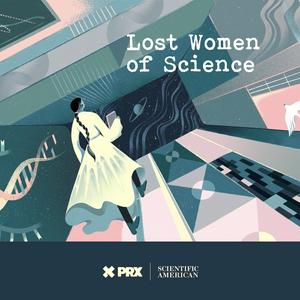
Get the free radio.net app
- Stations and podcasts to bookmark
- Stream via Wi-Fi or Bluetooth
- Supports Carplay & Android Auto
- Many other app features
Get the free radio.net app
- Stations and podcasts to bookmark
- Stream via Wi-Fi or Bluetooth
- Supports Carplay & Android Auto
- Many other app features


Lost Women of Science
Scan code,
download the app,
start listening.
download the app,
start listening.








